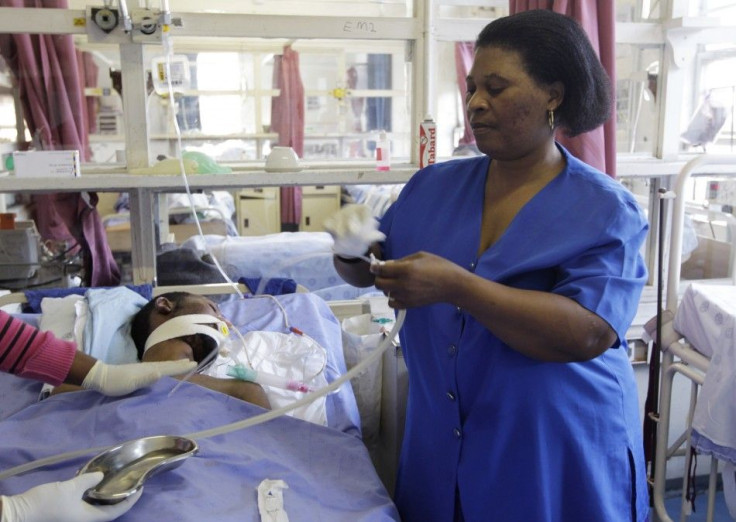South Africa Plans Universal Health Care, Amidst Health Crisis

The government of South Africa in planning to introduce a universal health care program.
A pilot program will commence in 10 areas next April, while the rest of the nation will be phased in over the next 14 years.
"These first steps towards establishing national health insurance are truly historic," said Health Minister Aaron Motsoaledi.
The ruling African National Congress estimated that the initial costs to establish the program at 128 billion rand ($18 billion).
"Without NHI [national health insurance], the burden of disease in the country will not be reduced because the majority of the population - and the section suffering the greatest ill health - will not access good-quality health care," Motsoaledi said.
“The central challenge to the stability and well-being of our nation is reducing the deep inequality between rich and poor, between privilege and deprivation. This goes to the heart of South Africa's future.”
He added: "If you earn above a certain income you will be required by law to make a contribution to the NHI Fund. It will not be possible to opt out of this responsibility.”
All types of primary health care will be covered by the program, excluding treatments like cosmetic surgery.
According to BBC, quality health care in South Africa is heavily focused on the private sector. Indeed, more than 80 percent of South Africans cannot afford private medical insurance.
They must depend upon publicly funded hospitals, which are already overburdened and charge small fees for treatment.
Motsoaledi lamented that the quality of care in public health institutions is "often totally unacceptable".
Some South Africans have expressed reservations about the program, which would require parliamentary approval. Many don’t want to pay into it if they will not use the service, but Motsoaledi says his primary goal is the maximize the potential of both existing public and private health care systems.
"The private sector is held up as an example of good service and quality of care, and this is mostly justified,” he has stated.
“What is not justified is the price tag that comes with certain forms of private health care provision. This is not only a burden to people using private health services, but a disservice to our country as a whole because it distorts pricing across the board."
Norman Mabasa, president of the South African Medical Association, told Reuters: "Private health care professionals are not opposed to the NHI because it will bring more business to them, but they want to see what the [proposal] sets out.
Meanwhile, a recent report from Human Rights Watch finds the number of South African women dying in childbirth has quadrupled over the past 20 years.
The HRW study revealed that 4,500 South African mothers die annually, even though almost 90 percent of them give birth in clinics or hospitals and maternity care is free.
Agnes Odhiambo of HRW warned that the new health care will not be successful unless the government overhauls the health service system.
"There is something very, very wrong with South Africa's health system,” she told Britain's Guardian newspaper.
“The idea of the NHI is to bring more equality and therefore more people into the health service. But if you have increased numbers of patients entering a system that is malfunctioning there is a danger that all you will do is chase them away.”
Moreover, the country faces a daunting crisis with HIV/AIDS.
According to the international AIDS charity Avert, almost 6 million people in South Africa are believed to be living with HIV and AIDS, more than in any other country.
In 2009, about 310,000 South Africans died of the disease. Almost one-third of women ages of 25 to 29 have HIV, alonng with a quarter of men 30 to 34.
© Copyright IBTimes 2024. All rights reserved.





















